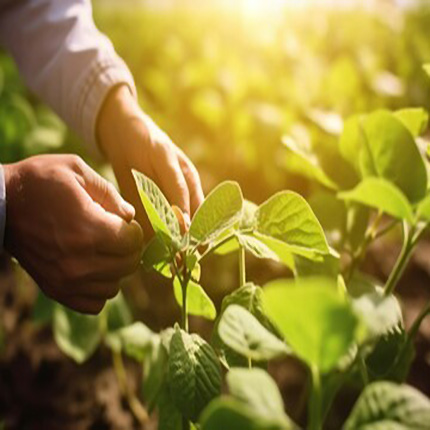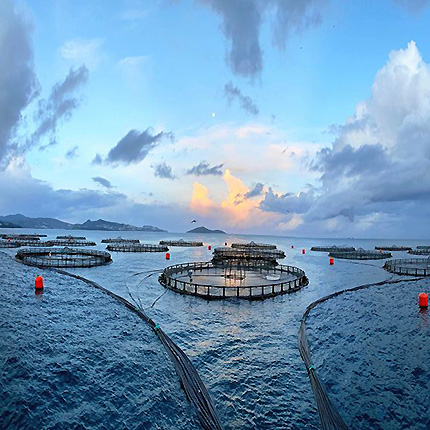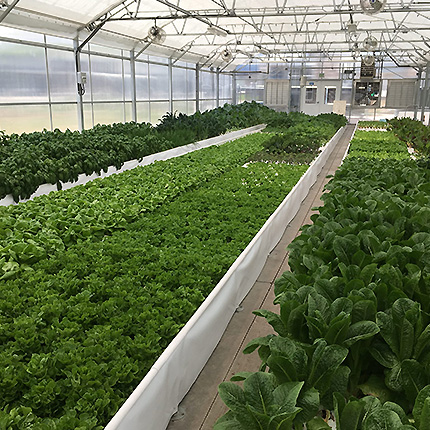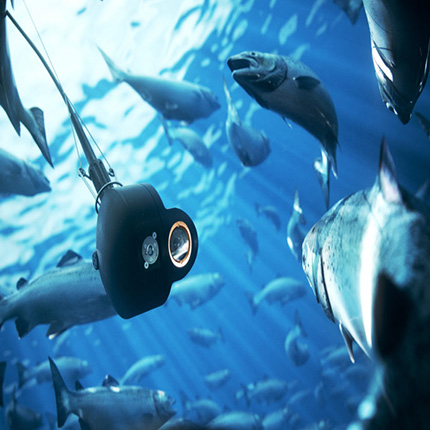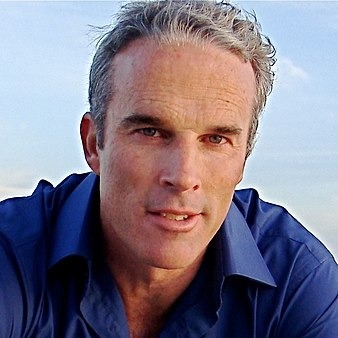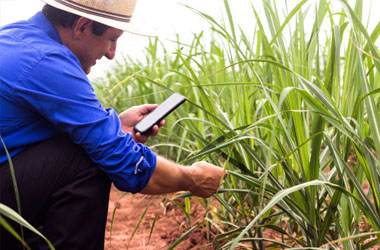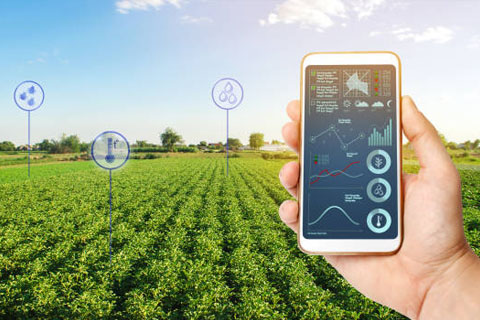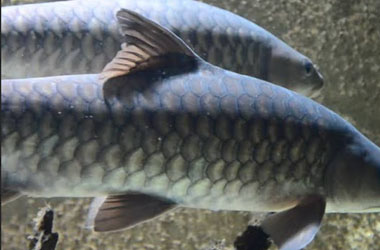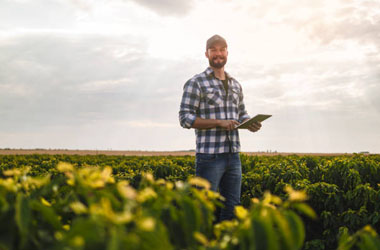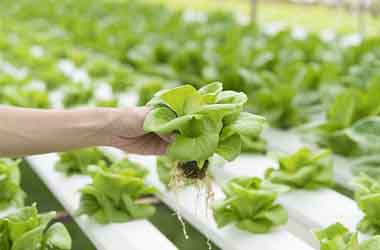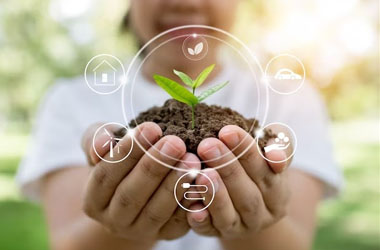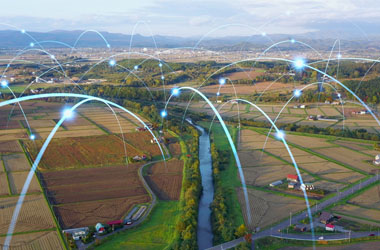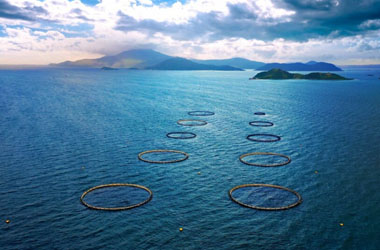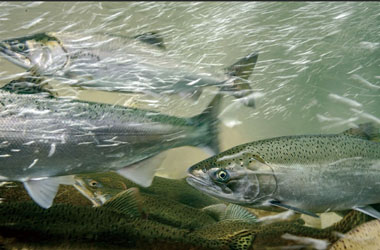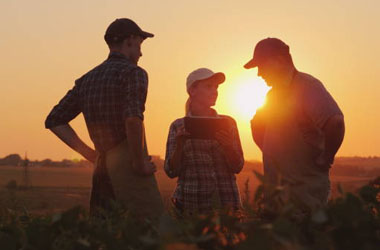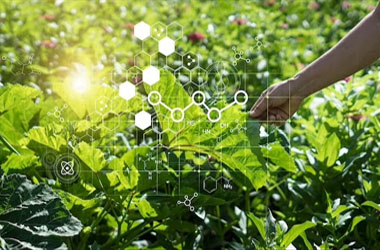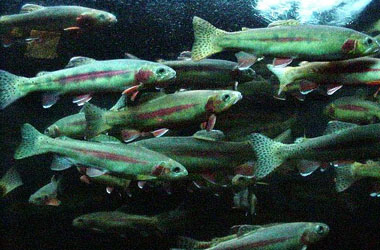Organigogo's primary focus is on addressing the complex challenges of feeding a growing population sustainably, promoting environmentally friendly agricultural and aquaculture practices, and integrating cutting-edge technologies to revolutionize the food production sector for a more sustainable future.
Organigogo's organic aquaculture methodology is closely linked to organic agriculture through its shared emphasis on natural feeds, eco-friendly practices, and animal welfare standards. This alignment with organic agriculture sets organic aquaculture apart, promoting biodiversity, mitigating environmental impact, and meeting stringent organic criteria to provide responsibly produced, high-quality seafood without compromising ecosystem health. This connection underscores the holistic approach of Organigogo in integrating sustainable principles across aquaculture and agriculture to foster a regenerative and ecologically balanced food production system.
We must bridge the technology, production, knowledge, and skills gap to accelerate the adoption of more ecologically sustainable food systems. The urgency lies in overcoming these barriers to ensure the swift transition to sustainable practices.
Organigogo's primary focus is to enhance organic aquaculture with robust support from organic agriculture by tackling critical sustainability challenges, environmental impact, and resource efficiency. Through innovative technologies and sustainable practices, Organigogo aims to address the pressing issues facing food production in the context of a growing global population and environmental constraints.
Key Challenges Addressed by Organigogo:
-
Feeding a Growing Population: Organigogo recognizes the intricate balance between meeting the increasing demand for food, particularly animal-based protein and ensuring environmental sustainability. Organigogo addresses challenges such as resource constraints, greenhouse gas emissions, land degradation, water scarcity, and biodiversity loss from current agricultural practices.
-
Overfishing and the Burden on Aquaculture: Organigogo acknowledges the critical issues surrounding depleted fish stocks, overfishing, and the environmental impacts of aquaculture expansion. By promoting ecologically sustainable aquaculture practices and reducing reliance on fish-based feed ingredients, Organigogo seeks to contribute to restoring fish populations and minimizing aquaculture's negative ecological footprint.
-
Industrialized Agriculture and its Limitations: Recognizing the detrimental effects of industrialized agriculture on the environment, Organigogo aims to address challenges related to emissions reduction, land and water scarcity, and environmental degradation. Organigogo strives to promote ecological resilience and transition towards regenerative food production systems by advocating for ecologically sustainable agriculture- specifically organic practices and innovation.
-
Promoting Sustainable Food Production: Organigogo focuses on developing and implementing sustainable technologies and practices to enhance food productivity while reducing the environmental impact of agriculture and aquaculture. By combining ecological principles with cutting-edge technology, Organigogo aims to create holistic and impactful solutions that benefit the environment, society, and the economy.
-
Integration of Aquaculture and Agriculture: Through initiatives like Acquakinetic, Organitum, Orgakinetic, and EcoFarmIT, Organigogo aims to contribute to making more sustainable the aquaculture and agriculture sectors by addressing critical challenges comprehensively and synergistically. By advocating for sustainable organic practices, reducing environmental impact, and promoting resource efficiency, Organigogo seeks to foster a regenerative and ecologically balanced food production system.
Organic Aquaculture
Organigogo's focus on organic aquaculture is paramount due to its unique ability to integrate sustainable principles akin to organic agriculture into aquatic food production. Organic aquaculture stands out from all other fish farming practices by adhering to strict guidelines prohibiting synthetic substances and prioritizing ecological balance and animal welfare.
Organic Aquaculture + Organic Agriculture
The connection between organic aquafarming and organic agriculture lies in their shared emphasis on natural feeds, eco-friendly practices, and animal welfare standards. This alignment with organic agriculture sets organic aquaculture apart, promoting biodiversity, mitigating environmental impact, and meeting stringent organic criteria to provide consumers with responsibly produced, high-quality seafood without compromising ecosystem health.
Multi-trophic Systems
At Organigogo, we promote ecologically sustainable solutions that address pressing challenges such as food security and biodiversity loss. Our emphasis on establishing and scaling organic aquaculture with multi-trophic systems underscores our commitment to driving positive change in the face of these sustainability challenges.
The aquafeed industry's quest for protein-rich alternatives aligns perfectly with our mission to provide sustainable food production methods. We recognize the urgent need to sustainably feed a growing global population while fostering environmentally conscious agricultural and aquaculture practices. We aim to transform the food production sector towards enhanced sustainability by exploring innovative protein sources and leveraging advanced technologies.
One of our key initiatives involves integrating protein-rich aquatic plants into our aquafeed formulations. This innovative approach contributes to the industry's search for sustainable protein alternatives and aligns with our goal of providing environmentally friendly protein sources to the species we focus on. By incorporating protein-rich aquatic plants and other innovative protein alternatives into our formulations, Organigogo highlights the ecological importance of ecological circularity (interconnectedness) between aquaculture, aquaponics, and agriculture to contribute to a more sustainable future.
Organigogo's Initiatives
Initiatives like Acquakinetic, Orgakinetic, Ecofarmit, and Organitum aim to support organic aquaculture operations through information and communications technologies and innovations tailored to meet the unique needs of organic aquaculture + agriculture + Aquaponics operations.
Advanced Technologies
Organigogo's initiatives seek to leverage AI, blockchain technology, IoT, and software solutions to enhance efficiency, traceability, transparency, and sustainability, developed explicitly to link and support organic aquaculture and agriculture practices.
Knowledge Sharing
Organigogo focuses on knowledge sharing, regulatory guidance, market networking, supply chain optimization, training, and advocacy in organic aquaculture. It aims to empower farmers with skills, third-party certification support, efficiency enhancement, cooperative initiatives, and policy influence for ecologically sustainable and prosperous organic aquaculture practices.
Bridging the Gap for Ecologically Sustainable Food Production
At Organigogo, we deeply respect all food producers – fishers, aquaculturists, and farmers. We understand the challenges they face and the vital role they play in feeding our communities.
Our mission is not to criticize existing methods but to bridge the gap towards more ecologically sustainable practices at this initial stage, to complement them. We recognize the immense value of conventional, super-intensive, and industrialized production in providing food security and economic stability.
The Urgency for Change
However, the current state of food production significantly strains our environment. Climate change and ecosystem degradation pose severe threats to the future of food security. We advocate for organic aquaculture as a complementary option alongside existing methods.
Our Approach
We believe in collaboration, not condemnation. Our team comprises experienced producers who understand the complexities of food production. We don't offer a "magic bullet" solution but rather practical alternatives and support for those seeking to incorporate ecologically sustainable practices.
Our Commitment
- Raising awareness: We aim to support producers and transfer knowledge about the environmental impact of current practices and the benefits of ecological aquaculture.
- Knowledge transfer: We aim to offer turnkey projects and all the resources, technology, and expertise to help producers transition towards ecologically sustainable methods.
- Building bridges: We foster collaboration between conventional producers and ecological pioneers, promoting knowledge sharing and innovation.
- Supporting all producers: We acknowledge all food producers' hard work and dedication, regardless of their methods. We want to offer solutions that complement existing efforts.
This reflects Organigogo's commitment to driving the industry toward a more sustainable and environmentally conscious future.

